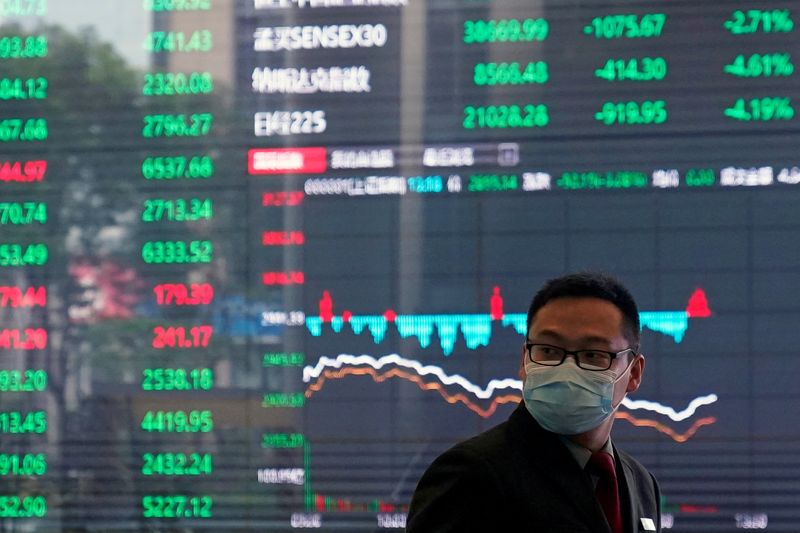This post was originally published on this site

Investing.com– Most Asian stock markets traded in a flat-to-low range on Tuesday as fears of rising U.S. interest rates largely offset optimism over stronger-than-expected Chinese economic growth.
China’s Shanghai Shenzhen CSI 300 and Shanghai Composite indexes traded sideways after data showed that the Chinese economy grew a bigger-than-expected 4.5% in the first quarter of 2023, helped largely by the lifting of anti-COVID restrictions earlier this year.
But while the reading showed that an economic recovery in the country was on track, other data highlighted an uneven rebound. Industrial production missed estimates for a second straight month in March, showing that the country’s massive manufacturing sector was struggling to recover from COVID-era lows.
Hong Kong’s Hang Seng index slid 0.8%, with property stocks among the worst performers for the day after data also showed that investment in China’s real estate sector slowed in the first quarter, despite the lifting of anti-COVID restrictions.
Still, strong retail sales data indicated that a consumption-driven recovery in the Chinese economy is largely on track, which is likely to benefit exporters to the country in the near-term.
But most other Asian markets traded in a flat-to-low range, amid uncertainty over rising U.S. interest rates. South Korea’s KOSPI fell 0.3%, while the Philippine Composite index led losses across Southeast Asia with a 0.6% decline.
Australia’s ASX 200 index fell 0.3% after the minutes of the Reserve Bank’s April meeting showed that the bank may yet hike rates further, despite announcing a pause earlier this month.
Broader sentiment was hit by growing uncertainty over when the Federal Reserve will pause its current rate hike cycle. Fed Fund futures prices show that markets are pricing in a nearly 90% chance for a 25 basis point (bps) hike in May, with a small chance of another 25 bps raise in June.
The prospect of rising interest rates bodes poorly for Asian markets, given that it limits the amount of foreign liquidity flowing into the region. Higher yields also weigh on the appeal of risk-driven assets.
Still, given that most Asian central banks have paused their respective rate hike cycles, Asian stocks may find some support in the near-term.
Japan’s Nikkei 225 index rose 0.6% and was the best performer for the day after new Bank of Japan Governor Kazuo Ueda gave a clear message that the bank will remain a clear outlier in keeping interest rates ultra-low for the time being.

